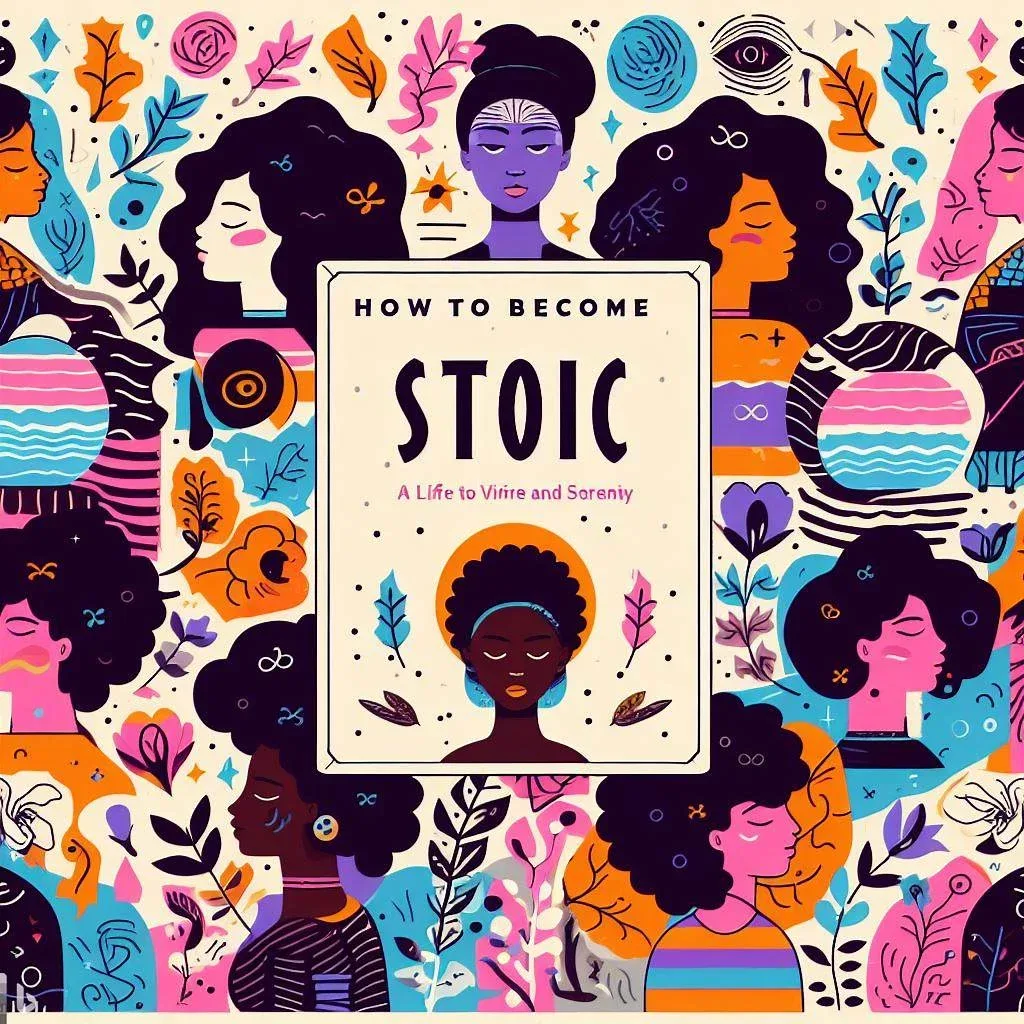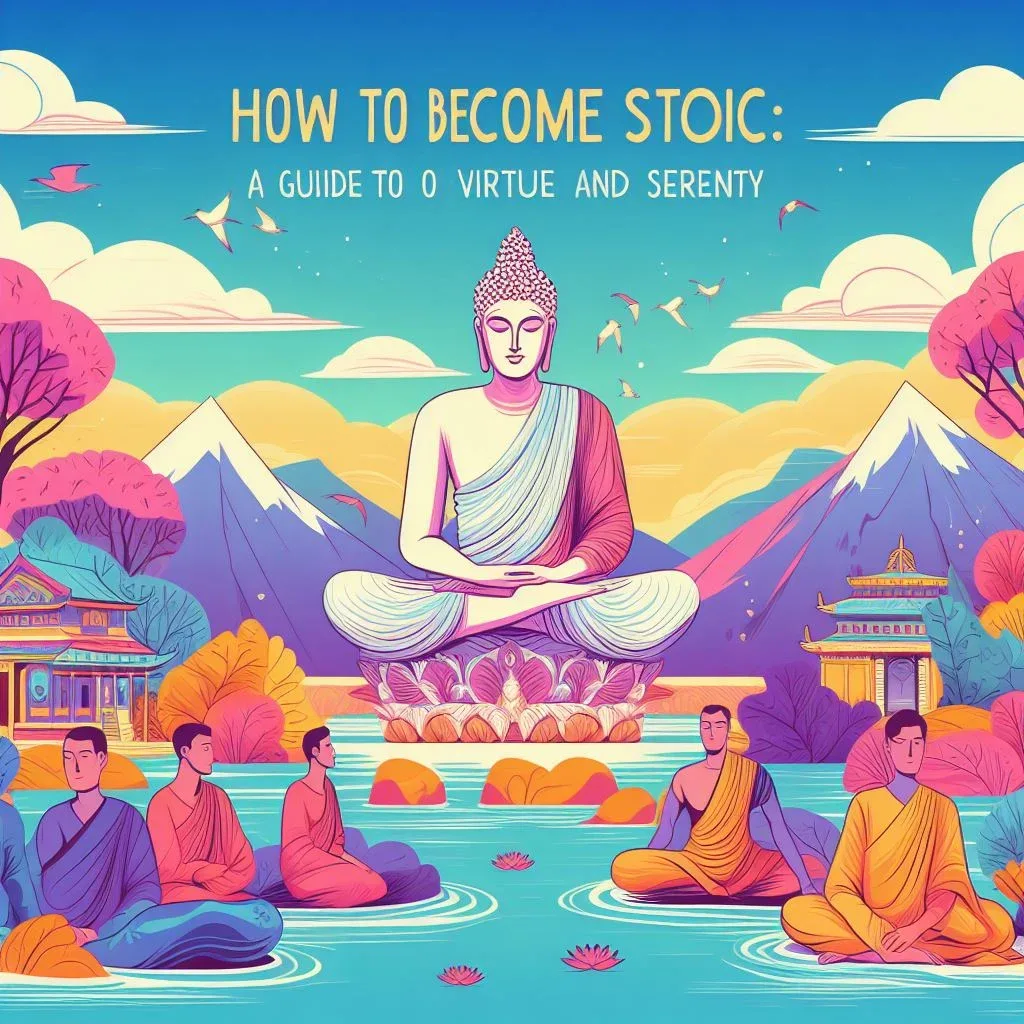In Search of Stoic Philosophy
Stoicism is an ancient philosophy that has gained renewed interest in modern times due to its lessons about living a virtuous life, controlling emotions, and achieving serenity. If you are interested in adopting Stoic principles in your life, this guide will walk you through how to become Stoic, highlighting the essential steps for embracing this transformative philosophy.

Understanding Stoic Principles
Before we dive into the practical steps of becoming Stoic, it's crucial to understand the key principles of this philosophy:
1. Virtue as Supreme Good
Stoics believe that virtue, including qualities such as wisdom, courage, justice, and moderation, is the highest good. Becoming Stoic involves actively seeking these virtues in your life.
2. Internal Control over Emotions and Circumstances
Stoic philosophy teaches that we cannot control external circumstances, but we have complete control over our internal reactions and choices. The practice of emotional control is fundamental.
3. Acceptance of Impermanence
Stoics embrace the impermanence of life, recognizing that everything is subject to change. Learning to accept this ephemeral nature is an essential part of becoming Stoic.
Steps to Becoming Stoic

1. Study Stoic Philosophy
The first step is to study Stoic philosophy. Read works by Stoic philosophers like Seneca, Epictetus, and Marcus Aurelius. This will help you understand the principles and practices of philosophy.
2. Practice Self-Exam
Stoics value self-examination. Regularly take time to reflect on your values, actions, and emotions. Ask yourself if your actions are in line with Stoic virtues.
3. Cultivate Emotional Control
Practice emotional control. When faced with challenges, take a deep breath, evaluate your emotions and try to respond in a calm and rational manner. Avoid impulsive reactions.
4. Learn to Accept the Inevitable
Accept the impermanence of life. Recognize that not everything is under your control, and that change is a natural part of existence. Learn to deal with losses and changes with serenity.
5. Value Virtue over Materialism
Reflect on your values and priorities. Value virtue, honesty and integrity over the unbridled pursuit of material goods and social status. True wealth lies in virtue.
6. Apply Gratitude in Your Life
Cultivate gratitude. Appreciate the simple things in life and practice gratitude regularly. This helps to create a more positive mindset and value the present.
Living a Stoic Life: Challenges and Rewards

Living according to Stoic principles can be challenging, especially in a world full of distractions and temptations. However, the rewards are profound. By becoming Stoic, you will find a more meaningful life with greater self-control, resilience, and inner peace.
Conclusion: The Path to Stoic Philosophy
Becoming Stoic is not a quick process, but a journey of self-development and self-improvement. By studying, practicing self-examination, cultivating emotional control and embracing virtue, you will be following the steps to a more virtuous and serene life.
So if you're ready to embrace the principles of Stoicism and begin a journey of personal transformation, start today. Stoicism offers valuable lessons that can help you face life's challenges with grace and live with virtue and serenity.
Frequently Asked Questions about “How to Become Stoic”
In this FAQ, we will answer the most common questions related to how to become Stoic, covering the principles and practices of Stoicism.

1. What does it mean to be stoic?
Being Stoic means adopting the principles of Stoic philosophy into your life. This involves seeking virtue as the highest good, practicing emotional control, accepting the impermanence of life, and valuing wisdom.
2. How can I start becoming Stoic?
To begin becoming a Stoic, study Stoic philosophy by reading works by philosophers such as Seneca, Epictetus, and Marcus Aurelius. This will help you understand the principles of philosophy.
3. What are the key principles of Stoicism?
Key principles of Stoicism include the pursuit of virtue, emotional control, acceptance of impermanence, the value of wisdom, and the practice of gratitude.
4. How can I cultivate emotional control?
To cultivate emotional control, practice self-awareness and self-examination. When facing challenges, take a deep breath, evaluate your emotions and try to respond in a calm and rational way.
5. How can Stoicism improve my life?
Stoicism can improve your life by promoting emotional serenity, self-control, resilience, and valuing important things like virtue and wisdom.
6. How long does it take to become Stoic?
Becoming Stoic is an ongoing journey of self-development. There is no specific deadline, as it depends on personal commitment. Starting to apply Stoic principles in your life is a step in the right direction.
7. What are the challenges of becoming Stoic?
Some of the challenges include resisting material temptations, controlling impulsive emotional reactions, and accepting impermanence. However, the benefits, such as a more meaningful life, outweigh the challenges.
We hope these answers have clarified your doubts about how to become Stoic and inspire you to begin your journey of self-transformation and personal growth. Stoicism offers a valuable life philosophy that can help you face life's challenges with serenity and wisdom.






